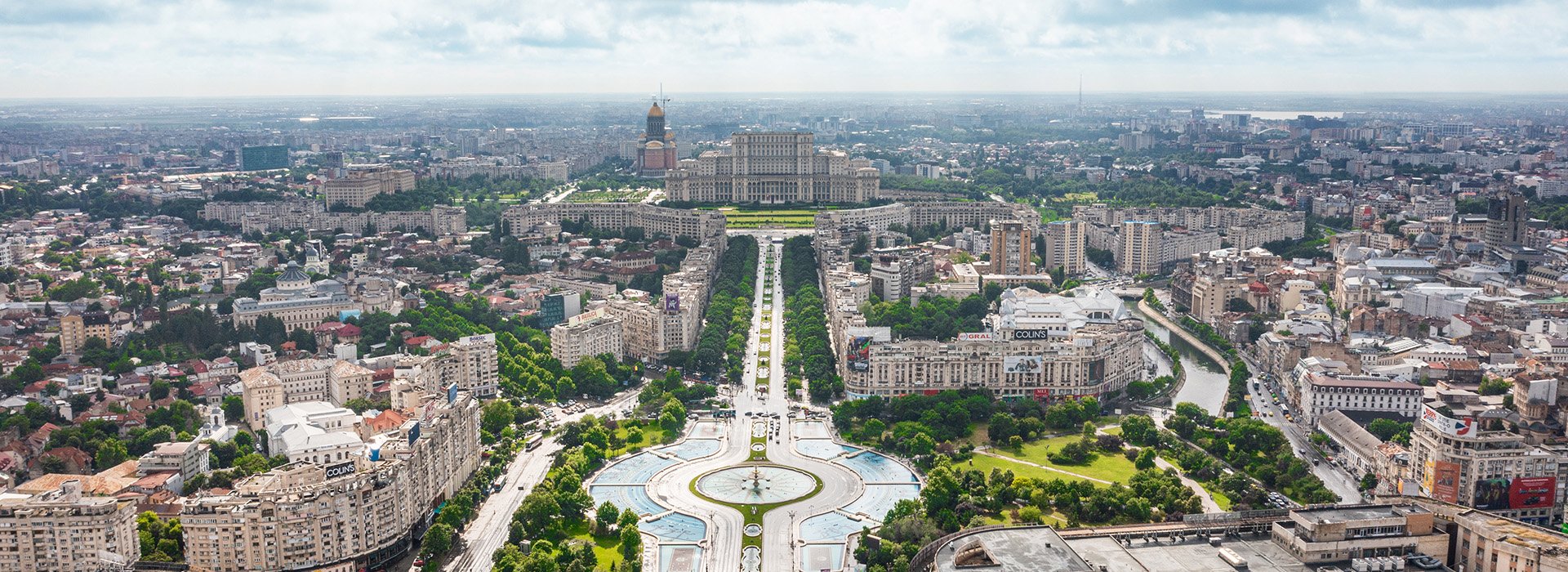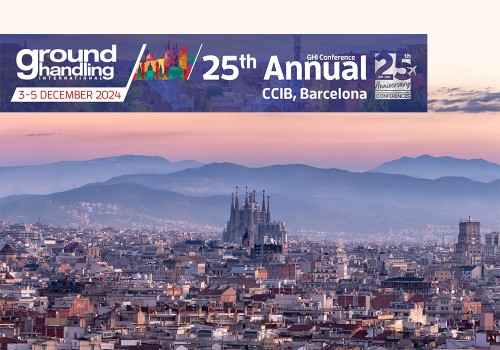On the Ramp in Bucharest with Fedelia Trasnea
Not many aviation stories begin in a small town in the Malaysian part of Borneo and end with a job at Euro Jet in Bucharest, Romania. Euro Jet has a team member whose story fits this narrative. Fedelia Trasnea, Euro Jet’s Station Manager for Bucharest, pursued her dream of exploring different cultures more than 20 years ago when she took a job as a flight attendant in the Middle East. Over the years, her passion for travelling and ambition to excel in customer service helped her land a senior position at an airline based in Bucharest which she now calls home. Fedelia’s decision to pursue a career in aviation is because of the strong mentors that encouraged her over the years. Now it is her goal to do the same for her younger colleagues, along with continuing to deliver her strong work ethic to Euro Jet’s customers at Bucharest’s two airports, Baneasa and Otopeni.
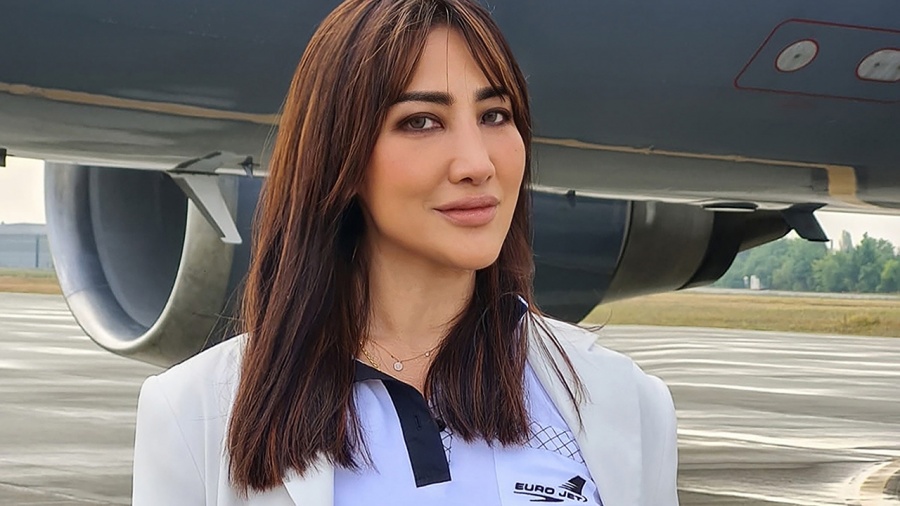
Fedelia, you are originally from Malaysia, yet you are Euro Jet’s Station Manager in Bucharest. Can you tell us about your journey that brought you all the way from Malaysia to Romania, of all places?
Aviation brought me to Romania! My career in aviation started in the year 2000 when I left Malaysia and started working as a Flight Attendant for Gulf Air. Over a period of six years, I ended up working for several major Middle Eastern airlines: Emirates, Etihad as well as Qatar. As a flight attendant you make a lot of friends and one of my best friends and colleagues was from Romania. She suggested I consider moving to Europe to continue my career in aviation there. She also told me about a job offer in Bucharest. At that time – it was in 2007 – Wizz Air opened their base in Bucharest, and I succeeded in getting hired as a Fast Track Cabin Crew Manager. Prior to starting that job, I had to go through an intensive six-month training. And then there I was.
Why did you choose aviation for your career? What was it that you found intriguing about this business?
Most of the people in my hometown in Malaysia – I would even say 90% - work in the oil and gas industry, which I did not want to do. I always wanted to travel, experience different cultures and discover other parts of the world. And I remember seeing a commercial for Singapore airlines where the flight attendants looked so gorgeous in their beautiful uniforms and that’s when it clicked (laughs). I flew to Singapore, got the job, but then life sometimes has other plans for you, and I ended up taking an offer from another airline.

And what is it that has kept you in aviation to this day? What do you enjoy most about this line of work?
In the beginning, I was not sure if taking a job as a flight attendant would result in a life-long career in the aviation industry. But I was very lucky to have amazing mentors throughout my professional journey in aviation. I received a lot of help and guidance to stay on the right path. It helped me correctly evaluate if aviation and I are a good fit. I have been especially passionate about continuously improving my customer service skills and helping passengers have an amazing experience. I fell in love with the nature of this job.
Let’s move to your work for Euro Jet. Can you recall what attracted you to start working for this company?
The first time I heard about Euro Jet was at EBACE. I was sent there as a representative of Bucharest’s local handling agent, Romanian Airport Services (RAS), for which I worked at the time. And that was also the first time I got to experience the world of general aviation and I was immediately wowed by it.
Euro Jet partners with RAS in Romania and as their representative I briefly met with Euro Jet’s CEO Charlie Bodnar and COO Tomas Chobot. Back in Bucharest I got to meet Euro Jet’s Country Manager for Romania, Daniel Ruiu and gradually learned more about the company. I liked that it supported flights of a high-profile clientele. I was attracted to the overall nature of the supervision work which requires perfect customer service. In 2017 Daniel called me and told me about a Euro Jet job opening in Bucharest, and I then recommended myself for the position (laughs).
There are two airports in Bucharest, Otopeni and Baneasa. Can you introduce Euro Jet’s set-up at both of them?
Euro Jet’s main base is at the Aurel Vlaicu Baneasa airport (LRBS/BBU). Most unscheduled flights arrive there and that is also where typically the majority of flights we service land.
Then there is also the Otopeni airport (LROP/OTP) in Bucharest which serves several purposes: There is a military base for military flights, the Tiriac Air FBO for general aviation flights, and also the main airport of Bucharest called Henri Coanda International. Depending on which airport our customer wants to use for their type of flight, that’s where we will be supervising their operation, no matter if it is Baneasa or Otopeni.
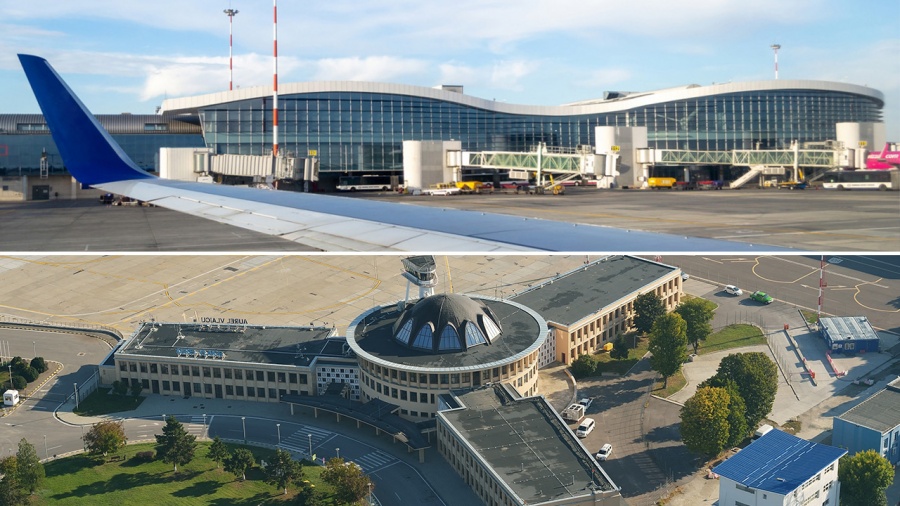
Who is part of your team?
This June, I was promoted to Station Manager. I report directly to Euro Jet’s Country Manager for Romania, Daniel Ruiu. Besides the two of us, there are our colleagues Anne-Mary Mitrut and Andrei Ilie at our base at Baneasa.
At the Constanta airport (LRCK/CND) which is Romania’s second busiest location, we have our dear colleagues Silviu Pavalasc, Ana-Maria Carapet and Bianca Oancea.
At other airports in Romania, there are Euro Jet’s local Ground Support Coordinators who complete our crew of 15 people in total.
All Euro Jet staff in Romania are very well trained with a good amount of experience. Thanks to their skill set and reliability, we can easily coordinate all flights and deliver high-quality service.
Are you often in touch with Euro Jet crews at other Romanian airports?
Yes, we communicate regularly and cooperate on assisting each other with flight coordination. Given the large number of airports in Romania, Daniel Ruiu’s job as a Country Manager requires a lot of travelling to all these locations to meet with our colleagues face-to-face. That way we can continue improving our services and maintain our relationships with everyone involved in Euro Jet Romania.
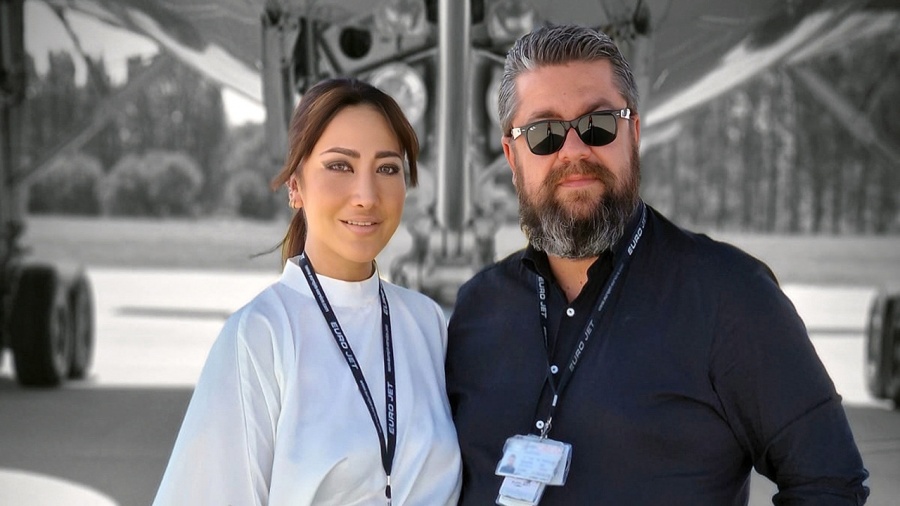
What does your average day at the airport look like?
The top priority is to keep the entire Bucharest team perfectly organized at all times. Having a top-notch organization is very important, so we work closely together and every evening we discuss all upcoming flights for the next day to make sure everything is ready, including the services of our vendors. We distribute the flights between the four of us and rotate at all stations where Euro Jet flights take place. Fortunately, Baneasa and Otopeni are very close to each other, just a 10-minute car drive.
Another part of our job is to work closely with directors of the airports as well as with the handling agents. Whenever there is a flight, we ensure all services are arranged in advance and everything goes smoothly on the day of the flight.
With what kind of clients do you mostly come in touch in Bucharest? Do they travel for tourism, business, or perhaps some special events?
We have a lot of different customers: There are those who fly in for business or investment purposes, but we also support a lot of diplomatic and military flights. Many celebrities fly to Bucharest for music events as Romania is well known for hosting summer music festivals. The most famous ones are the Neversea Festival and the Untold Music Festival.
What do you enjoy most about your job in Euro Jet?
The best moment for me is when our customers are more than satisfied with the support we provide. To see them happy and more than willing to use our services again is very rewarding. I would say the most important thing for me are the long-lasting relationships with our customers which are based on our good work and their confidence that we do a perfect job each and every time.
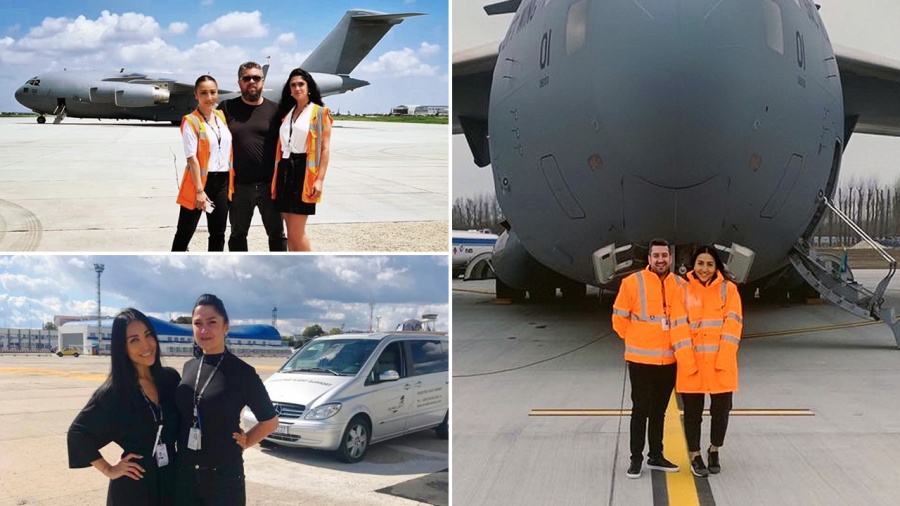
What, on the other hand, are the biggest challenges you are experiencing?
The biggest challenge is to maintain the highest possible standard of work ethic and principles and to motivate all parties involved in our operations to do the same. Plus, a present-day issue has been the worldwide shortage of airport staff which has posed a challenge for the Bucharest airports.
Let’s talk a bit about your life in Romania. What made you stay permanently in Bucharest? Were there any major cultural differences you had to face?
I met my husband here. And we share two beautiful children together. So Romania is my second home now. But I try to go back to Malaysia as often as I can. In fact, I just got back from a six-week-long stay in my hometown on the island of Borneo.
As for the difficulties I had to face, my biggest challenge was learning the language. Prior to moving to Romania, I lived in the Middle East, so I had experience with adjusting to a culture different from my own. Therefore, relocating to Romania was not too hard as I already knew what to expect.
But being a Malaysian and working on a ramp in Bucharest while learning to speak Romanian was a struggle for me at first. It required a lot of emotional intelligence to navigate through every situation. Fortunately, all my colleagues were very helpful.
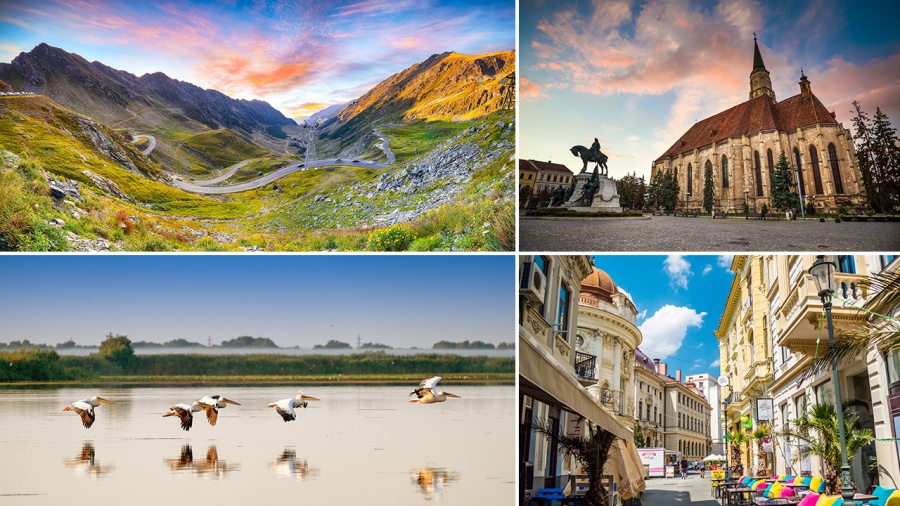
What languages do you speak?
I can speak English, Romanian and Malay of course. When communicating with our customers, I mostly use English; with our colleagues and vendors, all communication is in Romanian. At home, it is mixed. My children in fact speak Romanian, English, Malay, and also two Malaysian dialects.
That is very impressive! As for your second home country, what do you like about it? What are your recommendations for places to see and food to taste when in Romania?
Romania has a lot to offer for everyone. It has breathtaking landscapes, beautiful mountains, the Black Sea coastline, the UNESCO protected Danube Delta Biosphere Reserve. The Cluj region is famous for arts and music, in the Brasov region you should visit the wine country as well as the mountains. Romania is also culturally rich, we have many concerts, festivals, and great food. You name it, Romania has it.
Traditional Romanian food every visitor should try includes the famous Sarmale (cabbage meat rolls) or the Caru' cu bere (very slowly roasted pork knuckle). Bucharest’s city center has many great “restaurant streets” worth discovering. There is really a place for every tastebud, and I personally leave the choice to a moment’s inspiration (laughs).

How do you spend your time when you are not working at the airport?
I come from a musical family – each of us plays an instrument. I taught myself to play the guitar when I was six years old. I love listening to music as well as playing it. And my husband sings very well. Our favorite thing to do is to invite our friends over for a barbecue, I play the guitar and he sings.
Fedelia, thank you very much for finding time to share your experience with us. One last question, when looking ahead, what are your plans and things you want to achieve?
My plan is to continue growing as an aviation professional in Euro Jet, keep learning, take on more responsibilities and most importantly contribute as much as I can to my colleagues because our job is all about teamwork. I also want to give back as a mentor in the same way that my mentors did for me at the beginning of my aviation career, allowing my younger colleagues to achieve their full potential.
Images: Euro Jet Archive, Shutterstock
